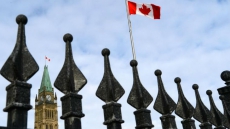Government funding and support
Earlier the Prime Minister announced a $1 billion COVID-19 relief package, but this mostly centered on money put aside for emergency loans through the Bank of Canada, Business Development branch (BDC).
This was bolstered by another $10B promised to support businesses in Canada, though they did yet break down what this will look like. We have asked that it include no-interest loans, wage subsidies, and a non-repayable credit for businesses to offset some of the revenue losses they are experiencing as a result. The most important small business measures currently in place are: waiving the one-week waiting period for EI benefits for employees who are in quarantine or who are ordered to self-isolate; and enhancing the work-sharing program to help support employers and workers who are impacted by a downturn in business due to COVID-19.
Due to the importance of the evolving #coronavirus situation, we have opened up our Business Helpline to all Canadian businesses to provide on the ground support. Call 1-888-234-2232 or head to https://t.co/aR8y74a3KQ for a frequently updated list of FAQs. pic.twitter.com/VRHdQI9LMs
— CFIB Buzz (@CFIBbuzz) March 16, 2020
The Prime Minister and provincial Premiers are meeting to discuss, among other issues, the COVID-19 situation. We sent the attached letter in advance of the meeting (this copy is addressed to ON Premier Doug Ford; we sent identical copies to all Premiers)
How to administer EI in different COVID scenarios
- If the quarantine is driven by the employee (ie. they have no symptoms, have not traveled out of country, but do not wish to come to work); they will not be able to collect EI. You will use ROE Code N – Leave of Absence
If the quarantine is symptom driven (whether they have COVID symptoms or just cold/flu symptoms), they will be able to collect EI; use Code D – Illness or Injury
If quarantine is employer driven (ie. they have no symptoms, have not traveled out of country, but you do not wish them to come to work); they cannot collect EI, but you have to compensate them their regular wages
If you have to temporarily close your business
Speak to your business insurance:
Check with your business insurance provider to see if your insurance covers this type of issue.
Notify your customers:
Give as much notice as possible so that they can purchase according to their needs beforehand or make other arrangements.
Notify your suppliers/landlord:
Review your supplier contracts, etc., to see if there is a clause in which you can pause the agreement while am emergency such as this is occurring (even if there is no clause, companies may understand). Ask for a reprieve on your commercial lease from your landlord while the business is closed.
Small business confidence took a sizable tumble in early March on news of the worldwide #COVID19 outbreak. CFIB's Business Barometer® Index dropped to 49.8 in the March 2-13 survey period, down more than ten points from its February reading of 60.5. https://t.co/rTKEGTuHXN pic.twitter.com/3BjOXjTDBK
— CFIB Buzz (@CFIBbuzz) March 18, 2020
Your employees:
Type of employee situations:
Will there be any employees working from home? If so, these are considered hours of work and will need to be paid.
Prior to shut down, are employees refusing to work due to unsafe working environment? Check your provincial obligations if you are required to pay under Refusal to Work situations.
Has your employee chosen to self-isolate? Most cases you are not required to pay.
Inform your employees:
Communicate with your employees that you will be shutting down your business on a temporary basis. You will need to let them know whether or not this period will be paid or unpaid, according to your business policies.
Complete a Record of Employment:
Prior to completing a record of employment, consider which EI program your employees will be on:
Regular Benefits
Sickness Benefits
Working while on claim
Work force downsizing
Working while on claim
Work-Sharing program (Rules will be updated)
Premium reduction program - For employers
Supplemental Unemployment Benefit Program
If your business will be shut down for more than 7 days, this means you are required to issue an ROE. Here are some useful links:
Reason for ROE, you may use:
Code A - Shortage of work (layoff)
Code D - Illness or injury
Code H - Work-Sharing
Code N – Leave of absence (for employee who requests quarantine)
Your workers compensation premiums:
Speak with your workers compensation office:
We strongly advise all business owners with an up-and-coming Workers’ Compensation premium payment due, to request relief from payment (or at the very least an extension).
Your taxes:
Report to the Canada Revenue Agency:
You will still need to file “zero” balances on your GST and PST remittances over this time to indicate to the CRA that you are not just missing payments.
Your Rights:
Unsure of your next steps, speak with your lawyer:
CFIB’s newest Privilege Program with Northbridge Insurance offers complimentary legal advice for 12 months when requesting an insurance quote. Please click here and or contact our Privilege Program Specialists by calling CFIB at 1-888-234-2232.
Managing staff and concerns
Having a sick time or attendance policy is good business sense at all times, not just when there is an outbreak of a virus. Letting employees know exactly what they are entitled to, based on Employment Standards requirements and your own internal policies, can reduce confusion and frustration. I have attached a sample Sick Policy template, for those owners who may not already have one.
If a worker just came back from a trip where COVID-19 is a consideration, or if they are feeling poorly, the recommended course of action is for the employee to monitor themselves for 14 days for any symptoms and to take their temperature twice a day. If the employee develops even a low-grade fever or mild cough, they should stay home and self-isolate, avoiding close contact with other people. The employee should also contact their healthcare provider or public health department.
You can ask the employee to get a fit to return to work assessment from a healthcare practitioner before the employee returns to work. It is recommended that the employer pay for any associated costs related to this assessment.
Be careful not to discriminate based on ethnicity or geographical locations. It’s important that the focus remains on the virus during your conversation with the employee. Having a policy in place that all employees returning from travel, regardless of destination, must stay away from the workplace, could help reduce the likelihood of a discrimination complaint. I have attached a sample Virus Management & Travel Quarantine Policy template for you.
*Note that forcing an employee to stay away from the workplace would likely require the employee to be paid, therefore having the employee work from home would make sense, if it is possible.
All parties need to be prepared for this, and we are imploring the government to consider what they will do to help small businesses under these circumstances. CFIB will continue to have and add more information and resources available to our members as this develops.
What CFIB is doing
There is a growing global concern about the Coronavirus (COVID-19), and it’s potential effects on the economy, your business, and your employees. We have listened to your concerns and sourced resources available to you and your business to prepare for any issues experienced in this area.
CFIB has written and mailed a letter (attached) to the federal and provincial governments appealing for funding and support to businesses who are seeing a dip in demand for their services due to COVID-19:
Providing relief from penalties and interest for late remittances of provincial taxes and WCB payments.
Pressing pause on routine audits, this process is already stressful for small business owners.
Having a small business hotline to help if a business who may have to shut down temporarily, or even permanently, to ensure employees are transitioned quickly into the EI system. The EI system needs to be prepared for a period of heavier unemployment, and,
Considering any other traditional natural disaster relief for those impacted.
Additionally, we are encouraging business owners to contact their insurance providers now to see if there is coverage for this sort of event, and to create continuity plans (template attached), to prepare for such an emergency.
What CFIB has recommended the governments should do
It is important to take early action to help stabilize the economy as best we can. We are pleased to see that the government has set up a committee to better understand the situation and to work to reduce the risks associated with COVID-19.
We are pleased that the government is waiving the one-week waiting period to access EI for employees who must stay home.
Expanding the work share program is a very good idea to help businesses who are experiencing a drop in demand for their products and services. Many businesses in tourism or those serving the Asian-Canadian community have seen a dramatic drop in sales, and allowing business owners to reduce hours will help them protect jobs.
We have submitted a letter asking provincial and federal governments for relief from penalties and interest for late remittances of GST/HST when businesses are in distress.
Governments should halt routine audits for the time being.
Consider relief measures for those experiencing significant impacts as you would with any other natural disaster
In light of plans to reduce payroll-based taxes in the US, CFIB calls on the federal and provincial governments to put planned increases in CPP/QPP premiums on hold.
Advice Business Resources has for businesses
CFIB has created an information hub and opened up its Business Resources line to all small businesses who need advice and information on COVID-19. Visit www.cfib.ca/covid19 or www.cfib.ca/coronavirus for more information.
Businesses whose workers can work from home should consider planning for that by figuring out which duties can be done remotely, and which can be modified or passed on to other staff in the event of an illness.
They should check their insurance policies and see if they can get coverage in the event of government-ordered quarantines and other closures beyond their control.
Re-read contracts to look for cancelation clauses. As interruptions from COVID-19 would be considered a case of force majeure, supplies could be further disrupted if suppliers are able to cancel contracts without penalties.
Businesses should communicate any new policies to their employees clearly, quickly and in a balanced fashion.
Businesses should also develop a continuity plan in case they do experience disruptions and focus on cash flow reserves.
*Because this is such a precarious issue, and unchartered territory, CFIB is advising that anyone with questions that hold legal implications contact a lawyer for further discussion, and to review policies and templates before implementation.
To stay updated we recommend that you bookmark cfib.ca in your web browser, and check back daily, as we will be updating our site this develops.



